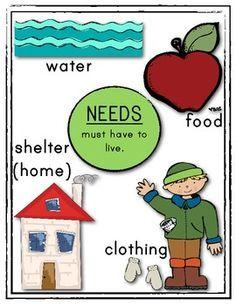In a rapidly changing world, the concept of legacy extends beyond the confines of wealth and inheritance, evolving into a multidimensional construct that encompasses values, impact, and social responsibility. As individuals and families navigate this intricate landscape, the challenge lies in crafting a legacy that not only fortifies familial bonds but also contributes meaningfully to the broader society. This analytical exploration delves into the strategic frameworks and thoughtful considerations necessary for creating a legacy that harmonizes personal aspirations with societal needs. By dissecting the principles of sustainable impact, intergenerational wealth transfer, and community engagement, this article provides a confident guide for those seeking to leave an indelible mark that transcends time, benefitting both their descendants and the world at large.
Understanding the Dual Impact of Personal Legacy
When considering the influence of personal legacy, it’s essential to recognize its dual impact—how it shapes the lives of our family and contributes to the broader society. This duality requires a thoughtful approach, blending personal values with societal needs. For families, a legacy often serves as a beacon of shared values and traditions. It can manifest in various forms, such as stories passed down through generations, family businesses, or financial inheritances. Each element plays a role in strengthening family bonds and providing a sense of identity and continuity. However, it’s crucial to ensure that this legacy does not become a burden but rather an inspiration, encouraging future generations to thrive and innovate.
On the societal front, a legacy can be a powerful tool for change, leaving a lasting imprint on communities and beyond. Key components might include:
- Philanthropy that addresses pressing social issues.
- Advocacy for causes that reflect your personal values.
- Mentorship and educational initiatives that empower others.
These actions not only contribute to societal growth but also reflect an individual’s commitment to a cause greater than themselves. Balancing these two facets requires a strategic vision—one that harmonizes personal ambitions with a genuine desire to make a positive societal impact. Ultimately, crafting a legacy that resonates on both fronts can lead to profound and enduring contributions to both family heritage and societal advancement.

Strategic Philanthropy for Lasting Societal Change
In today’s world, creating a legacy that serves both familial and societal interests is a sophisticated endeavor that requires careful planning and a nuanced understanding of strategic philanthropy. The key is to align personal values with broader social goals, ensuring that contributions are not just financial transactions but investments in long-term societal improvement. This can be achieved by focusing on sustainable initiatives that address root causes rather than symptoms, thereby fostering systemic change. The process involves identifying specific social issues that resonate with family values, understanding the landscape of existing solutions, and collaborating with organizations that have a proven track record of impact.
To maximize the effectiveness of your philanthropic efforts, consider the following approaches:
- Engage family members: Involve them in decision-making to ensure that the legacy reflects shared values and interests.
- Leverage expertise: Consult with philanthropic advisors or experts in the chosen field to make informed decisions.
- Emphasize accountability: Partner with organizations that prioritize transparency and measurable outcomes.
- Utilize strategic giving vehicles: Explore options like donor-advised funds or family foundations that offer flexibility and control.
- Focus on education and empowerment: Support initiatives that provide individuals and communities with the tools they need for self-sufficiency.
By adopting these strategies, you can craft a philanthropic legacy that not only honors family traditions but also contributes to meaningful societal advancements, ultimately achieving a balanced impact that endures through generations.

Balancing Family Needs with Broader Social Responsibilities
Finding harmony between familial obligations and societal contributions is a nuanced endeavor. One way to approach this balance is by fostering a mindset that values both personal and collective growth. Invest in education, not only for your immediate family but also by supporting community programs and scholarships. This creates a ripple effect, enhancing opportunities for others while setting a strong foundation for future generations.
Another strategy involves engaging in sustainable practices that align with family and societal well-being. Encourage your family to participate in community service or environmental conservation efforts. Consider these actions:
- Organize family volunteering days at local shelters or food banks.
- Implement household recycling and energy-saving initiatives.
- Support businesses that prioritize ethical practices.
By intertwining these practices into daily life, you cultivate a legacy that resonates beyond personal boundaries, crafting a future that benefits all.
Implementing Sustainable Practices for Future Generations
Creating a legacy that transcends generations involves adopting and promoting sustainable practices that not only benefit your immediate family but also contribute positively to society. At the core of this endeavor is the integration of environmentally friendly habits into daily life. Recycling and waste reduction are fundamental steps; they minimize environmental impact and set a precedent for future generations. Additionally, adopting a minimalist lifestyle, which emphasizes quality over quantity, can significantly reduce consumption and waste, teaching younger family members the value of mindful living.
Beyond individual actions, consider influencing broader societal change by investing in sustainable businesses or community projects. Supporting local farmers, for instance, can encourage agricultural practices that are both eco-friendly and economically viable for communities. Similarly, advocating for renewable energy sources not only reduces reliance on fossil fuels but also inspires others to consider alternative energy solutions. By embedding these practices into the family ethos, you create a ripple effect that promotes sustainability on a larger scale, ensuring that the benefits are reaped by both your family and society for generations to come.



